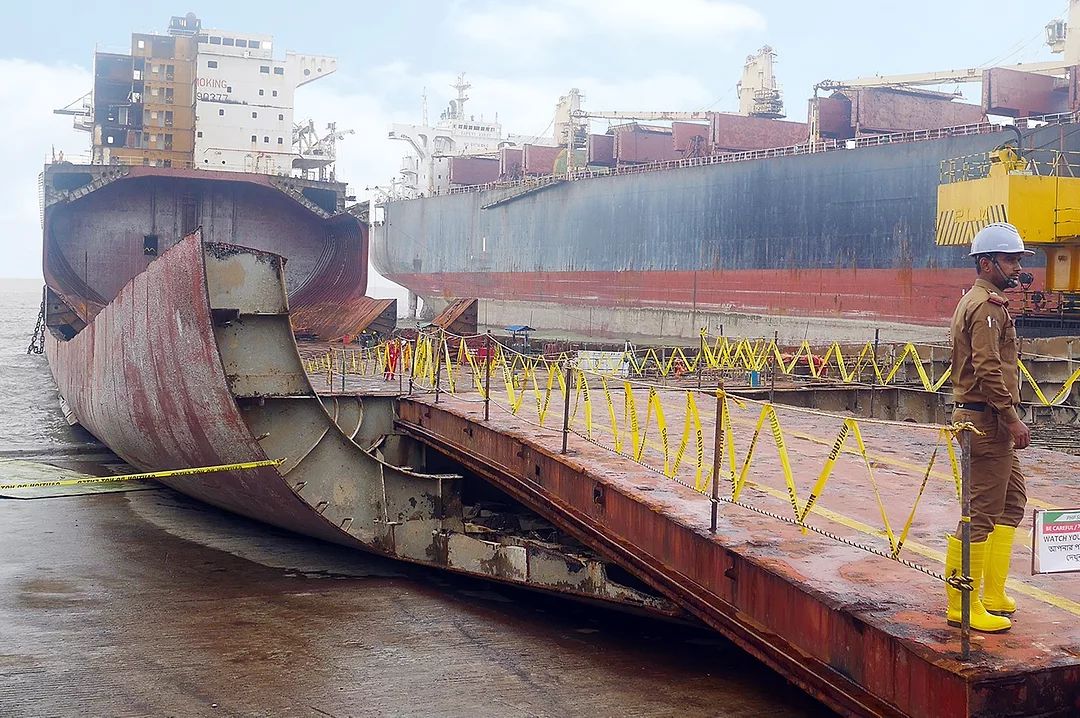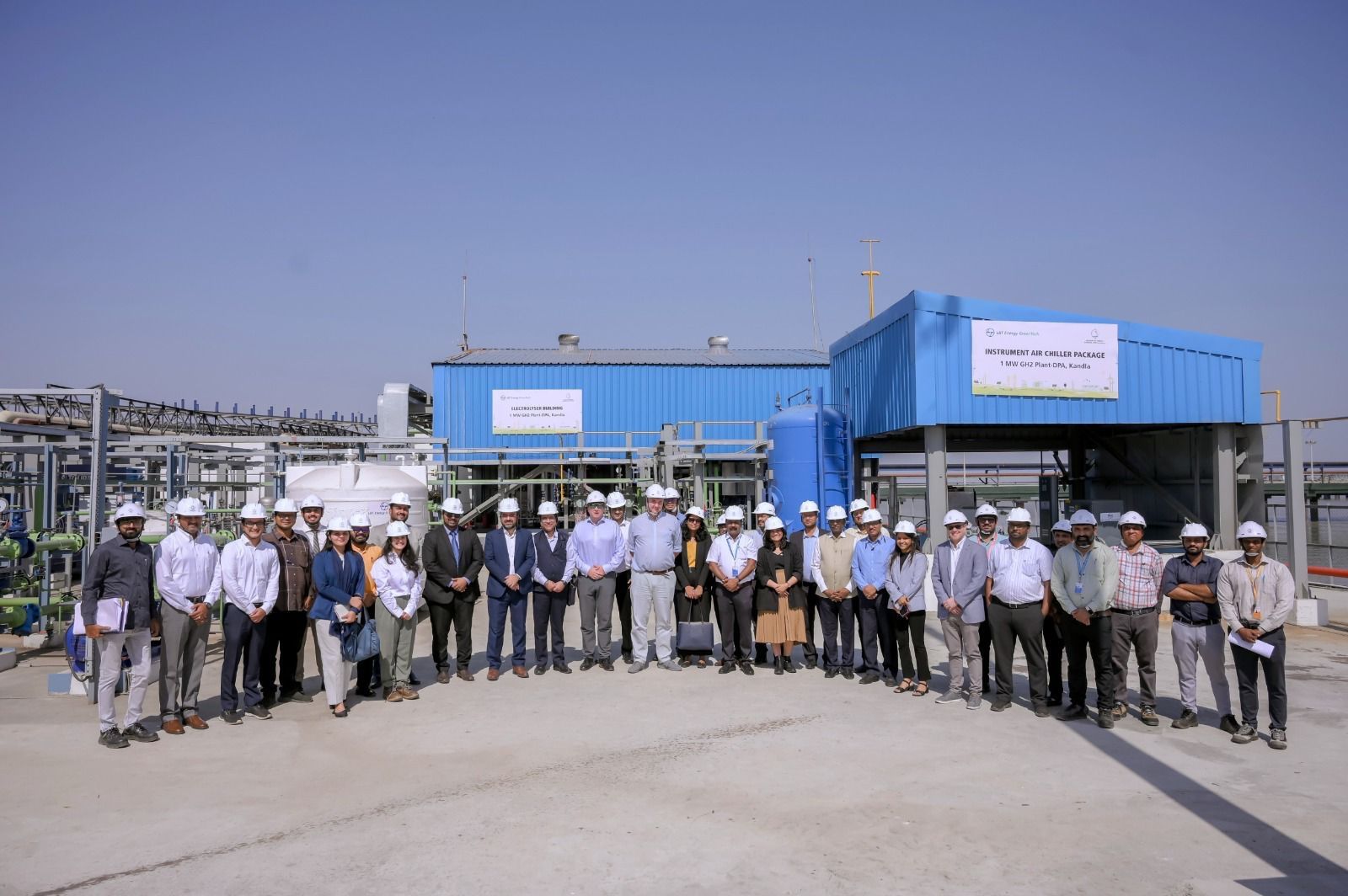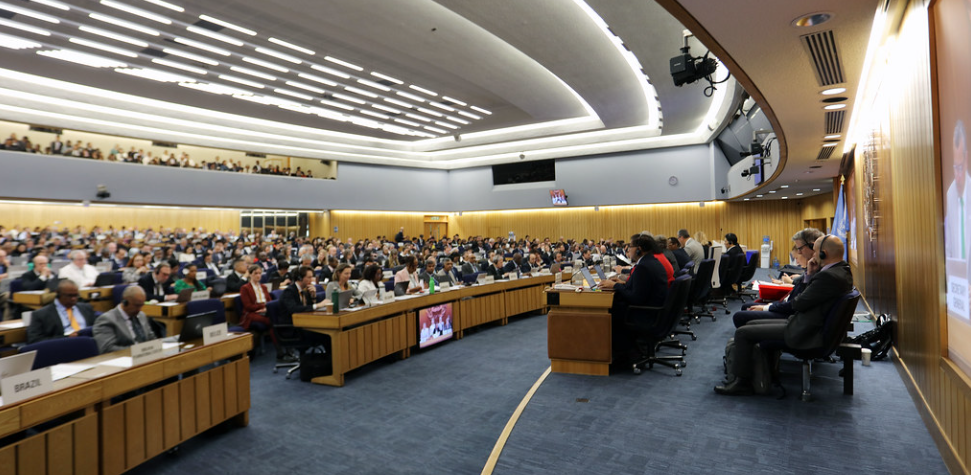Global Ship Recycling: Struggles, Uncertainty and Hopes for Recovery

The global ship recycling market is facing a tumultuous time as several macroeconomic factors converge to create a perfect storm of uncertainty and volatility. The industry, particularly in the Indian subcontinent, has been reeling under pressure from fluctuating steel prices, currency devaluation, and international tariffs. While the situation is grim, there is a cautious optimism that the market may have hit rock bottom, with a potential recovery on the horizon—barring any unforeseen shocks shortly.
Steel Prices and Tariffs Disrupt Markets
One of the most significant developments shaking the global ship recycling industry is the movement in steel plate prices in India and Pakistan, two of the major hubs for ship recycling. As noted by GMS, a leading ship recycling company, these markets have experienced unexpected and surprising shifts in steel prices, largely due to external economic pressures. A key factor behind this instability is the 30% tariffs imposed on various goods imported from China, which has thrown the steel market into disarray.
The imposition of these tariffs has led to a supply-demand imbalance, pushing steel prices to unpredictable levels. India and Pakistan, both heavily reliant on steel imports, have felt the brunt of this move. The higher cost of imported steel, compounded by domestic production inefficiencies, has driven prices up. However, these unexpected surges have not been matched by demand, leaving recyclers in a precarious situation. For an industry that thrives on predictable, steady pricing, this unpredictability has been damaging.
The knock-on effect of the steel price volatility is evident in the offers being made for scrap vessels. Over the past few months, vessel offers have fallen by over $90 per ton, dropping from highs of over USD 600/LDT to firmly below USD 500/LDT. Even container units, typically favored by recyclers due to their higher scrap value, have seen significant declines. This sharp drop in vessel offers has created a challenging environment for ship owners looking to offload aging vessels, who are now hesitant to introduce new tonnage into the market.
Currency Fluctuations Add to the Chaos
Adding to the turmoil in the ship recycling market is the erratic behavior of currencies in the key recycling nations. The U.S. Dollar, which is the benchmark currency for international trade, has been particularly volatile in its exchange rate against the currencies of India, Pakistan, and Bangladesh.
Bangladesh, in particular, has suffered its worst week for the Taka in comparison to the U.S. Dollar, driven by ongoing struggles to control the currency. Since May, the interim government in Bangladesh has been battling to stabilize the Taka, but with little success. The depreciation of the currency has led to higher costs for importing steel and other raw materials, further squeezing the margins of recyclers in the country. This currency weakness has made it even more difficult for Bangladeshi ship recyclers to compete in the global market, as they are forced to offer lower prices to compensate for the rising costs.
The currency fluctuations are not limited to Bangladesh. India and Pakistan have also experienced sharp movements in their currencies against the U.S. Dollar, creating additional uncertainty for recyclers. These fluctuations have made it difficult for recyclers to plan and make firm offers on vessels, as the cost of imports and raw materials can change dramatically in a short period. This uncertainty has left many recyclers on the sidelines, waiting for more stability before committing to new purchases.
Indian Recyclers Briefly Uplifted by MSC Sales
Amid the gloom, there was a brief moment of optimism for Indian ship recyclers, thanks to a series of prompt sales from Mediterranean Shipping Company (MSC). MSC’s decision to focus its recycling efforts exclusively on India, with a pre-approved list of Hong Kong Convention (HKC) compliant yards, provided a much-needed boost to the industry.
Alang, the heart of India’s ship recycling industry, saw a noticeable increase in the volume of tonnage arriving at its waterfront as a result of MSC’s policy. This uptick in activity was a welcome relief for Indian recyclers, who had been struggling with a lack of supply and low vessel prices. The sales from MSC were seen as a highlight of the week and lifted the mood among recyclers, who were happy to receive a temporary increase in tonnage.
However, this boost was short-lived. The broader market conditions, including steel price volatility and currency fluctuations, continue to weigh heavily on the industry. While the MSC sales provided a brief respite, they were not enough to reverse the overall downward trend in the market.
Uncertainty Reigns, But Hope Persists
The current situation in the global ship recycling market is one of deep uncertainty. Recyclers in India, Pakistan, and Bangladesh are facing a difficult environment, with limited and often laughable offers being made for vessels. Many recyclers are nervous about the immediate future and are reluctant to commit to new purchases without seeing more stability in the market.
Ship owners, too, are playing a waiting game. With vessel offers at such low levels, many owners are abstaining from introducing new vessels into the market, unwilling to accept the reduced prices. This has led to a stagnation in supply, further exacerbating the challenges faced by recyclers.
Despite the grim outlook, there is a sense that the market may have reached its bottom. With vessel offers having fallen so significantly, some industry experts believe that the only way forward is up. There is hope that once global steel prices stabilize and currency fluctuations subside, the market will begin to recover.
However, this optimism is tempered by the knowledge that external factors, such as geopolitical tensions and further economic disruptions, could derail any potential recovery. The Middle East, in particular, is seen as a wildcard, with some analysts speculating that developments in the region could have a significant impact on the ship recycling market in 2025.
Conclusion: A Fragile Industry at a Crossroads
The global ship recycling industry is at a crossroads, caught between the forces of economic volatility and the hope for recovery. Steel price fluctuations, currency devaluation, and international tariffs have combined to create a challenging environment for recyclers in the Indian subcontinent. While there have been brief moments of relief, such as the MSC sales in India, the overall outlook remains uncertain.
For now, both recyclers and ship owners are adopting a cautious approach, waiting for more stability before making any major moves. Whether the market has truly hit bottom, as some believe, or whether further shocks await in 2025, remains to be seen. What is clear is that the industry is in a fragile state, and any recovery will depend on a delicate balance of global economic factors.
Author: shipping inbox
shipping and maritime related web portal








